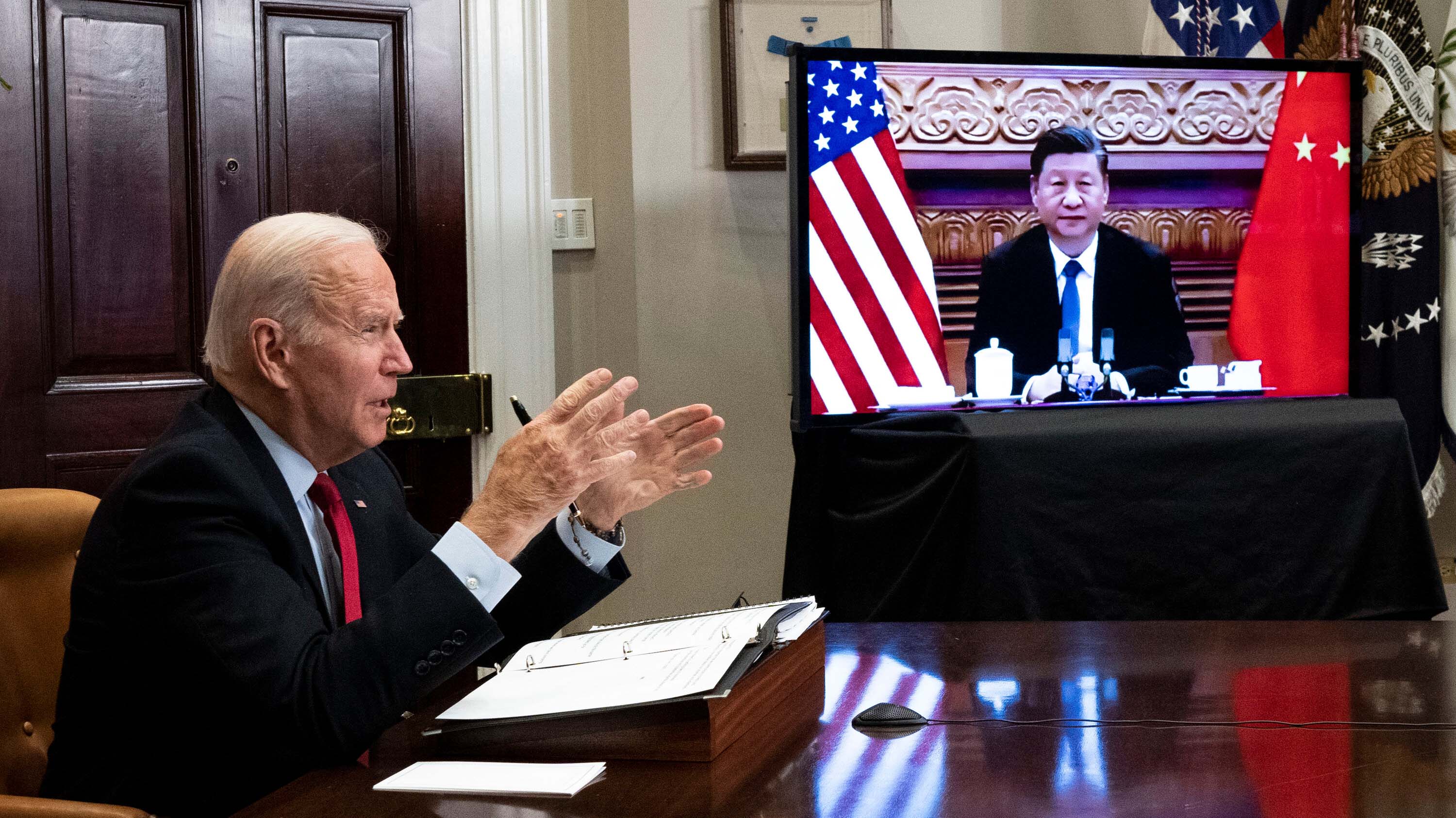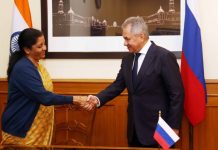
The high voltage virtual meeting between two most powerful world leaders lasted more than 210 minutes, but the mankind did not get any committed assurances from the two leaders or a definite road map for the revival of the world economy.
(A New Delhi-based independent columnist offers an in-depth study. The views expressed are his own.)
The Indian establishment expected that the welfare and the uplift of more than 2.5 billion people of the earth living in Asia would be spelt out, when the much awaited virtual summit between two most powerful world leaders, US President Joe Biden and the Chinese President, XI Jinping, was held on Monday, November 15. The high voltage meeting, which was scheduled for 90 minutes, lasted more than 210 minutes, but the mankind did not get any committed assurances from the two leaders or a definite road map for the revival of the world economy.
Most of us in India did not expect any spectacular panacea for the problems of the contemporary world, it was expected that the two giant economies would be again be complementing each other. The world, however, had to be reconciled that the communication between the two stalwarts has been re-established. It is expected to usher in a period of strong reasons for optimism, but there are apprehensions about the outcome of these talks. It was reflected in the recent observation of the Indian foreign minister, S. Jai Shankar, who in his off-the-cuff remark at an international conference in Singapore observed that “India-China relationship are undergoing through a bad patch”. India expects that the summit should enable a better understanding in the world. Unless, Jinping could assure Biden that China would be genuinely working for peace, the worldwide apprehensions against China about its immediate and long-term intensions would continue to haunt.
The two leaders, Biden and Jinping, were not meeting or interacting for the first time. They were quite known to each other, when they were vice presidents of their respective countries. Both had met and dined together in 2013 on the Tibetan Plateau. For Biden, the United States could be explained in one word: “possibilities.” It could be interpreted as an attempt to evolve a new plan for ensuring healthy competition in the fields of trade and commerce at the same time avoiding conflict, whether intended or unintended. With this optimism, the international relations need to be redefined.
The summit received worldwide attention. Few want the return of the cold-war era, when the world’s precious resources were wasted in the unending competition for establishing supremacy against each other. In spite of the claim of strategically superior weapons, the world powers, including the developed world, could not prevent the deadly spell of the Covid-19. In spite of the US allegations against China for the release of the corona virus from its facilities, demanding enquiry, the world is quite aware of the facts that the laboratory at Wuhan was established by France and the research in the study of viruses was liberally funded by the US Corporate and the government funds. In this context, the demand for a thorough enquiry is just for the public consumption.
The world watched the virtual summit with rapt attention. The strategists and economists were trying discussing the possible spin offs of the talks between the leaders of the world’s two largest economies and their likely impact in triggering off the markets across the continents. Since for the past three decades, the world economy was driven to serve the geo-strategic interests, whether helping the least developed or the developing countries of Asia, Africa and Latin America; whether China, now with huge trade surpluses would be magnanimous to the under developed world or these economies would adversely be hit by the Chinese financial assistance imposing abnormally high interest rates.
The ambitions of a leader
Xi Jinping, who appears to be dreaming to be remembered as an unquestioned Chinese leader like Mao has quietly ended the two systems in one nation, agreed upon by his predecessor in Hong Kong in 2020. It is believed that he did it to cater to the ultra-nationalists’ demand in the Communist Party of China (CPC) or reasserting his supremacy within the party. He targets Taiwan to merge it in the country before the China celebrates its Communist regime in 2049. Xi Jinping’s worry that the western powers are keen to undermine the unity and concept of one China by recognizing Taiwan is misplaced. During the summit, his cautioning Biden about the possible repercussions on the issue of recognition to Taiwan, perhaps is just a rhetoric or muscle flexing addressed to the gallery. However, in his bid to claim a position in the history of China, Jinping would like to annex Taiwan.
Jinping’s demand that the Chinese companies should not be prevented to penetrate the American economy is a part of a larger strategy to gain a strong foothold in the free economy while retaining the close Communist system. It would be difficult for Biden to concede his demand that under the pretext of security, the Chinese companies, mostly owned by the government or CPC, should not be screened before allowing or seeking investment in the free market. Biden has tried to counter the Chinese pressure by reiterating the need for establishing “some common sense guardrails, to be clear and honest where we disagree and work together where our interests intersect.”
The two countries had done adequate homework before the summit. It took place amidst friendly or congenial environment. Earlier, just a few days after the COP-26, which had ended with a positive note, when the world’s fading super power, USA, and the emerging and assertive new world leader, China, agreed to implement much more vigorously the programmes, first signed in 2015 in Paris and reiterated at the two-week high-level talks among the world leaders for saving the world. It was natural for the world to be elated with the agreement among the two nations, which contribute maximum emissions of the poisonous gases.
It may take some time for the world leaders to realize that China-US accord at COP-26 on environment was just a part of the new initiative of master strategist, Xi Jinping. The summit has successfully helped him to cater to the domestic politics as well as to show an olive branch to the rest of the world. Meanwhile, during the post-Covid-19 months, he has successfully reasserted his leadership despite the substantial setback to the country’s economy. Earlier this month, he had ensured at the sixth plenary session of CPC a resolution was adopted extending his tenure. Earlier, the 100-year-old political outfit had passed a resolution in favour of Mao Zedong in 1945 and later in support of Deng, who had opened the country’s economy for private initiative. Thus, Jinping joins the coveted positions enjoyed by his two illustrious predecessors. Earlier in 2018, China already had scrapped the two-term limit on the presidency.
Biden’s tough adversary
Xi Jinping’s tenure as president had begun in 2012, but during his vice-presidency, he had successfully convinced the CPC that China is now poised for a Super Power status. He caused much discomfiture to the western powers, which had been liberally funding China, as China strived to become the earth’s manufacturing hub without allowing any opening of its systems. With the formal ending of the concept of one nation, two systems in Hong Kong, the feeble light of democratic institutions in the erstwhile British colony too has finally eclipsed. It is also possible that just a few weeks before the summit, China’s flexing of its muscle against Taiwan, a tiny nation, could be part of the process of projecting Jinping as an assertive negotiator at the high table of the international diplomacy.
Jinping represents one of the few contemporary world leaders, who had to undergo even existential challenges, when hardly in teens. The 1953 born Jinping is the son of a prominent Communist revolutionary Xi Zhongxun, and a vice-premier. Maybe for this reason he is called a “prince-ling”. However, his father was purged and imprisoned in 1962, just prior to the Cultural Revolution. He was hardly 15 when sent to the countryside for “re-education” and hard labour in the remote and poor village of Liangjiahe for seven years – an experience that would later figure large in his official story.
After many refusals, he finally gets into the CPC in 1974. Since then, he never looked back. He served in Hebei province and also in Shanghai before becoming a member of the top decision-making body, Polit Bureau. In 2012, he became president. A graduate in Chemical engineering, he married a winsome glamorous singer, Peng Liyuan. He often recalls his tough life in Beijing that “I was only 14. The Red Guards asked, ‘How serious do you yourself think your crimes are?’“I said, ‘You can estimate it yourselves. Is it enough to execute me?’; the Guards asserted, ‘We can execute you a hundred times.’ On this, his prompt reply was, “To my mind there was no difference between being executed a hundred times or once.”
The Indians are aware of him that how difficult is to negotiate with China under Jinping, now Biden faces this ‘tough negotiator’, a rival in making or an established towering Asian leader in the affairs of the world.













